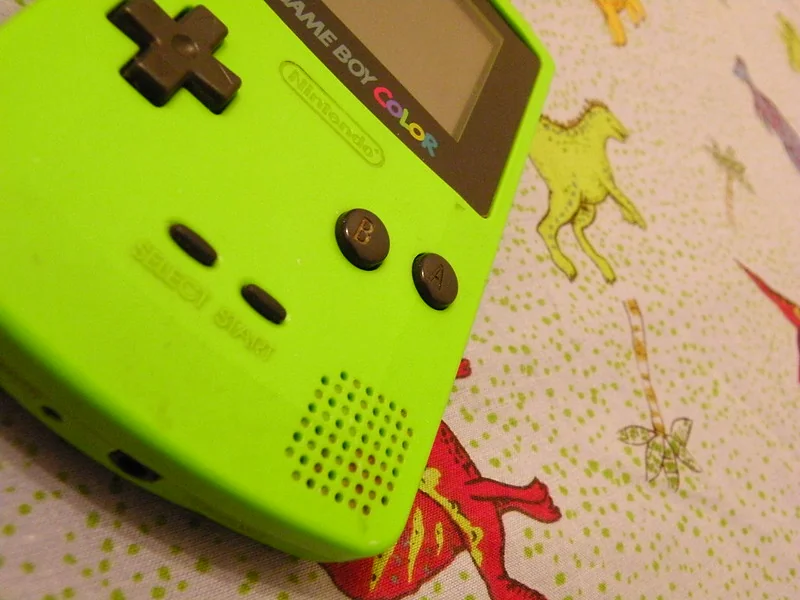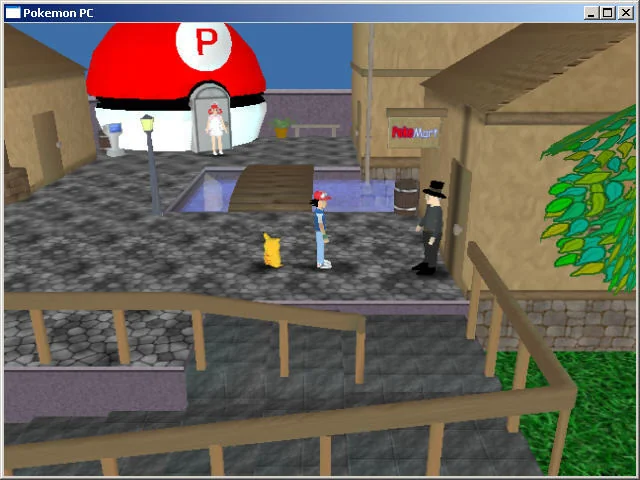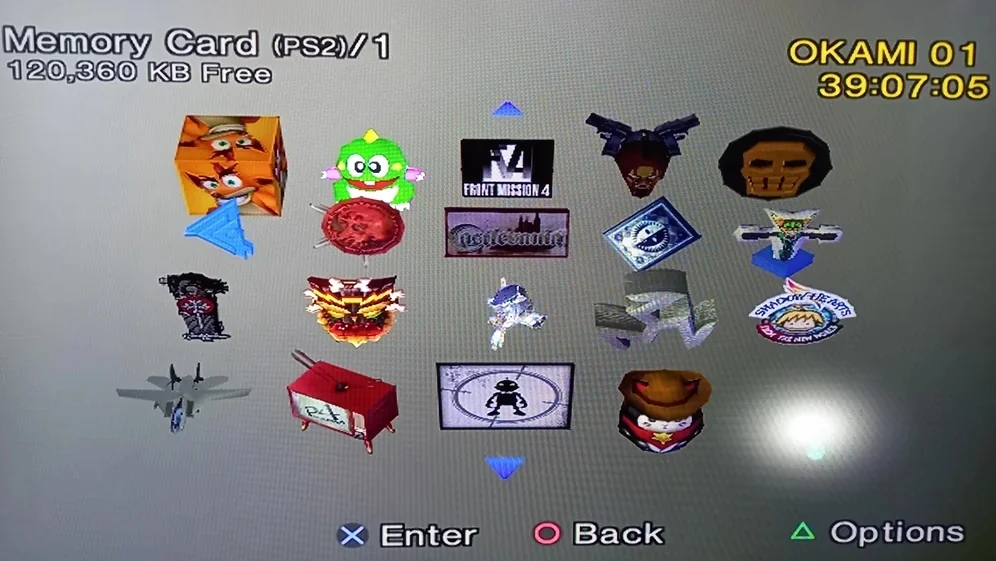Looking from the Outside
I’ll always remember that wonderful day my dad came back home with a lime green Game Boy Color and some random games he thought I’d like. I was so happy. And while my friends and classmates eventually moved on to shiny new PlayStation 2s, I spent years with that trusty Game Boy and just eight games to my name. With such limited choice, I squeezed every damn drop of fun from each title. In an era when gaming libraries were small, we made our own replay value. Borrowing or renting games was common for me too; I’d swap cartridges with the neighbourhood kids or attempt to play a rented RPG to 100% completion before returning it. I wasn't hopping from one new release to the next, so I truly mastered and cherished what I had. I know that constraints helped with my creativity, because my silly imagination ran freaking wild on those screens.
This scarcity-driven life had an unintended benefit, it made gaming a daily ritual and a social equalizer. With fewer alternative entertainments, I found myself returning to the same games every day after school. I wasn’t alone, surveys show that roughly half of teens in low-income households play video games daily, a higher share than their wealthier peers. When you only have one new game to enjoy every birthday, you learn to savour that shit. There’s a kind of comfort in that familiarity; that game becomes a friend to you. And in my case, those marathon play sessions became my social currency. I’d excitedly share tips and secrets with friends who also only had a couple of games to their name, and we formed friendships over these shared experiences, trading knowledge like precious goods. Limited games didn’t limit our fun; honestly if anything, they focused it, turning us into mini experts on the few titles we could access.

Making Games Last
Of course, when you can’t afford new games often, you find your own ways to extend the life of the ones you have. In my childhood crew, using devices like the GameShark was common practice to discover new facets of the games we owned. We treated cheats and glitches as toys in themselves, experimenting to see how we could bend the game’s rules. One controversial U.K. report even claimed that the accessibility of cheat codes and mods makes it easy for young people to develop hacking skills (perhaps on a slippery slope to cybercrime I guess?) Obvious sensationalism aside, there’s a bit of truth there. Messing and tinkering with games taught me basic tech literacy. Editing configuration files to get an game running on a underpowered PC, or using some fan-made patches to translate a Japanese game into English were normal activities in my gaming upbringing. Unknowingly, I was building early IT skills (problem-solving, troubleshooting, even a bit of coding) just by trying to make my games work my way.
Economic constraints also pushed many of us into the realm of software piracy and hardware mods. In regions where a legit console cost as much as a month’s rent, the only viable way to play was through bootlegs. I know some of my friends from Southeast Asia remember having no problems with piracy, because his PlayStation and PlayStation 2 were imported and modified to run any burnt discs. And in some countries, official consoles were so exorbitantly priced, that modding a system to play cheap games was the norm. I fondly remember the thrill of getting those “999-in-1” bootleg cartridges, basically a single Game Boy cart allegedly packed with hundreds of games (though in reality, they were the same few titles).
Hardware often was second-hand too. We’d reuse and repair old components well past their prime. I built my first PC from an old home computer, swapping in parts over time until it could barely run Minecraft. I learnt to problem solve hardware, and even Jerry-rig physical setups, like mounting a thrifted monitor on a dinner table with a homemade shelf. These acts of making do really did feel like victories to me, because each game that successfully booted and repaired controller, was a small triumph over my lack of resources. Disadvantaged youth often engage in “remixing, reworking, and repurposing” media in their own ways, which is exactly what I'm sure a lot of us were doing with the games and shows we liked. In hindsight, our relentless improvised tinkering was a hands-on tech education. We weren’t just consumers of entertainment; scarcity had turned us into active creators and problem-solvers within our hobby. Some of those childhood tinkerers even moved those skills into careers, and there are stories of modders who, years later, landed jobs as professional game developers, crediting their modding experience for giving them a foot in the door.

Late Party Crasher
But don’t get it twisted, being perpetually late to the party in gaming was also a bittersweet reality. There were so moments of envy. I’d listen at school while the more well-off kids were chatting about the newest 3D graphics or the cool new sequel that I knew I wouldn’t play for years, if ever. It would be four more years before I got a PS2 of my own, long after most people had moved on. Experiences like that could have bred resentment or FOMO and don't get me wrong, it did suck, but honestly they taught me a kind of perspective. Late doesn’t mean being left out of the joy, and when I finally did get to experience classics well after their heyday, it was like discovering some buried treasure; those games really didn’t just stop being fun just because they weren’t new. In fact, approaching them later often meant I could enjoy them without hype or bias, and often at a fraction of the cost.
On one hand, yes, we sometimes felt like outsiders to the “cool” conversations. It really stung when you couldn't join in because you’re still playing last year’s game (or last decade’s console). On the other hand, I definitely had a healthier relationship with hype. When you know you can’t afford something at launch, you naturally learn to wait, and to value what you do have. It really did give me an appreciation for what had as a kid and more love for the things I have now. It also made me focus on other stuff like reading and drawing, and I don't think that I missed out. My experiences were certainly not usual, but it taught me early that fun isn’t a race to keep up with trends. Late adopters savour the journey in their own time. By the time I got a used PlayStation 2, for example, there was so many amazing titles waiting for me... And they were cheap! And you know what? That wait made everything so much sweeter!
Being late to the party also kinda gave me a sort of camaraderie with others. I'd often be in forums or school lunch tables, bonding over hand-me-down consoles and decade-old games as if they were new. We didn’t have the playground clout of the kid with the latest console, but in our little circles we formed our own culture, one that mixed nostalgia with novelty. We might have been geeking out in 2008 over a Dreamcast title from 2000, but it was our shared discovery.

Learning to Love the Game
Looking back, growing up gaming under financial constraints imbued me with more than just technical tricks. It gave me creativity and safety that extended far beyond games. Play, after all, is a natural teacher in tough times. When my family struggled with money (and the stress that brings), disappearing into a beloved game world was a reliable comfort. Those games were a refuge and a way to cope. Through games, I could exercise agency in worlds where the constraints of poverty fell away. Is it any wonder so many of us held onto gaming into adulthood?
Moreover, my childhood fostered a lifelong curiosity with messing with shit. The kid who spent afternoons bypassing school library settings to download games to take home, grows up unafraid to tinker with technology. The teenager who modded his PlayStation to load burned discs might later mod an Android phone or contribute to making an emulator. We also carry with us a creative mindset in approaching problems. We grew up knowing how to make do and think around obstacles, whether it was inventing game content because we couldn’t buy it, or repurposing some old laptop into a makeshift console.
Maybe I missed some cultural zeitgeists or multiplayer fads of the moment. But in exchange, I definitely gained something more enduring, a fundamental love for the medium, unburdened by consumerism. Even now, I regularly find myself playing games in a particular way, and wringing out every bit of value, digging into mod communities, appreciating the artwork and effort because I remember when each new game was precious to me. The early scarcity trained me to be like this, and it’s made me relish in sharing games and knowledge with others.
In adulthood, we all now have the means to buy any game we want, yet the irony is we’re often careful not to let excess spoil our joy. My relationship with video games is deeper and more personal for what I had to do to enjoy them. In a way, being late to the party meant that when I finally arrived, I came prepared with an appreciation that the true value of gaming isn’t in how much you spend, but in how much you actually enjoy it.